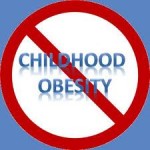Delving further into the article I discovered that the British Heart Foundation had recently organised some survey research and they discovered, to their horror, that 90% of people think that there must be symptoms associated with that “silent killer” high blood pressure.
So I thought it would be a good opportunity to share with you British Heart Foundation’s tips for a healthy heart and to prevent coronary heart disease.
a) Give up smoking. You can find some ideas to help you pack in smoking here.
b) Get your general health road tested by your doctor.
c) Maintain a healthy weight. Read our weight loss tips and blog posts here.
d) Keep active. Pretty hard for many of us but much more for people with chronic pain. You might find this guide to exercise for people with pain useful.
e) Lower your salt consumption. Both in and out of the home.
f) Eat your 5-a-day. Do you?
g) Cut the saturated fat. Find out more about diet and health here.
h) Always read the food labels. You would be amazed at the salt and sugar in processed foods.
i) Cut down on the amount of alcohol you drink. How much do you drink?
j) Watch your portion sizes. Make sure you eat less.
Do you have any tips for our readers? If you do please do feel free to share below in the comments boxes.
Thanks in advance.

